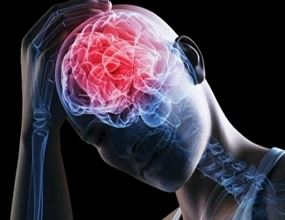A traumatic brain injury, or TBI, is a common injury in this country, with over a million incidents reported each year. Many are infants or children who are injured in accidents or sports activities. Adult brains are commonly damaged by falls or vehicular accidents. The majority of these injuries are relatively minor, although some can be life-changing or even fatal. Anyone who has had a head injury of any significance should be checked by a doctor for signs of concussion.
Serious Brain Injuries
A severe concussion can affect various parts of the body. For example, the person may become unconscious following the injury. Speech may be slurred, and bowel and bladder function could be impacted. Memory loss is common. Fatigue, lethargy, and emotional changes are often noted by the victim or family members. The possibility of brain bleeding should be checked by CT scan or an MRI, depending on the doctor’s evaluation of the victim’s condition and symptoms. Other tests may be prescribed as well.
Some people with head injuries may find it difficult to resume their regular work duties, or they might feel overwhelmed or incompetent. Others experience relationship difficulties that may be attributable to the brain’s functional alterations due to the injury. These symptoms can last a few weeks, but in serious cases, they can linger for months or years. Symptoms may change over time, which is why it is important to be evaluated by a neurologist or other medical practitioner who routinely deals with brain injuries.
Mild Concussion
A mild concussion can occur when a person’s head is struck or shaken hard enough to damage the brain. An internal bruise may form although it is usually not detected from visual observation. A bump on the head may appear. The victim may experience lesser forms of the above symptoms. In addition, vision may be impacted, as well as the ability to concentrate or focus. Doctors may recommend staying home from work a few days to rest, and avoiding computer work or cell phone texting, as these keep the brain working actively when it should be resting to heal.
Anyone experiencing symptoms like these should see the doctor or visit the Emergency Room, especially for headaches that persist longer or hurt worse than regular headaches.
A brain injury can be life-changing, but good medical care can help.
Anica Oaks
Recent Posts
- Castor Oil For Better Hair Growth: Is It Myth Or Fact?
- Exploring the Differences Between Sermorelin, Ipamorelin, Ibutamoren, GHRP2, and GHRP6: Understanding Their Role in Human Growth Hormone Regulation
- Unraveling the Mystery: Understanding the Causes and Prognosis of Ventricular Tachycardia Without Apparent Heart Disease
- Understanding Grandparents’ Rights in Oklahoma: Navigating Visitation and Legal Protections
- 10 Reasons to Consider Hypnotherapy for Your Health


